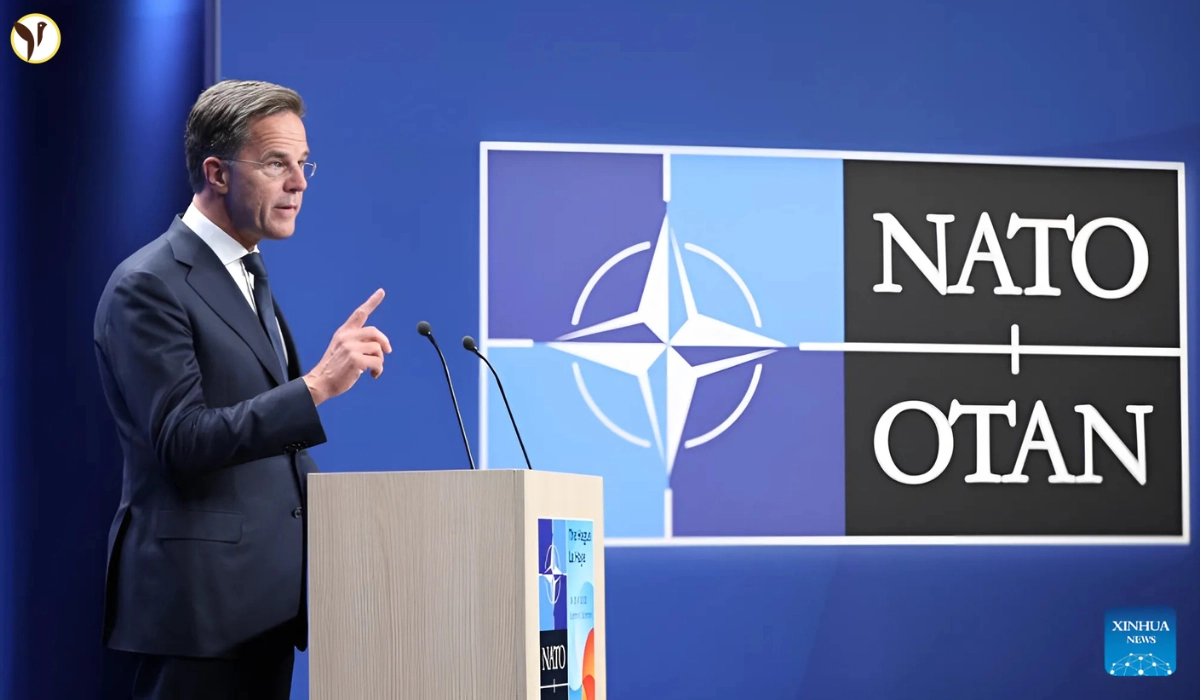On June 24, 2025, at the NATO summit in The Hague, Secretary-general Mark Rutte mentioned that the United States is committed to NATO. He stated that U.S. Secretary of State Donald Trump, and U.S. officials, told NATO leaders that the U.S. is and always will be committed to NATO.
Despite some Europe leaders still being a bit more constrained in how to work with the U.S. and how to respond to Secretary of State Donald Trump being re-elected to these new terms, and of course, the last few years, Trump has been critical of NATO member countries as contributing too little in expenditures to their commitments towards NATO defense commitments; Overall, if one took anything away from the summit, it might have been that the U.S. is going to remain in NATO, and the U.S. has its back.
Rutte said that U.S. support was not just rhetorical support, it was tangible support, especially as it put pressure on all other NATO member countries to increase their defense budgets successfully. Trump has always wanted other countries to pay more to NATO, and through this new commitment and focus, all the countries successfully joined and worked with him.
Trump has consistently stated he supports the overarching objectives of NATO, however, he has made clear that the U.S. is going to stick with a defense spending level of just over 3.4% of GDP, which begs the question as to how might U.S. raise that number while then asking everybody else to raise their spending as well.
With respect to the global stage, this summit may have had the earliest meetings between Trump and core European leaders in which they, in some part discussed ongoing global threats with an emphasis on both the war in Ukraine and the constant tensions in the Middle East. The leader of Ukraine, President Volodymyr Zelenskyy had a sightseeing appearance at the pre-summit dinner, but did not stay for the summit discussions which speaks to a shift in the global stage NATO is prepared to accept in relationship to the war.
NATO Partners Move New Defense Spending Target to 5 Percent
Of the many things to take away from the summit, one of the biggest changes was commitment from NATO members that would move to a defense spend of 5 percent of GDP. A monumental change from the previous 2 percent target that has been in place for a number of years and would represent a remarkable spend increase for many member nations.
The new 5 percent target can be divided into two areas:
- 3.5 - Core Military Capability - weapons, personnel and systems.
- 1.5 - Broader Security Issues - infrastructure, logistics and cyber security.
This is considered a significant win for President Trump who has repeatedly stated that NATO member nations need to and should be responsible for increasing their own Defense spend. Some member nations such as Spain were a little slow to commit to the full 5 percent, but Trumps words seemed to have pushed both Spain and the alliance towards agreement, although it did require a bit of discussion. Rutte (also the chair) made clear to those in attendance that the alliance expects all NATO members to meet the targets -- no exceptions.
With conflicts continuing throughout the world and specifically in Eastern Europe and the Middle East, NATO leaders believe that the escalation of military spending is warranted to protect the broader collective interests of their members. They have hope that increased defense spending can result in modernized capabilities and an advance in efforts against emerging threats.
The agreement reinforced an unmistakable message to competitors like Russia and Iran: NATO is united, has resources, and will prepare and protect membership against aggression from opponents. Russia further stated that NATO is more of an act of aggression made up of a coalition of united powers claiming peace, to which NATO leaders strongly accept to disagree.
At the conclusion of the summit, officials expressed unity, shared responsibility, and preparedness - being critical under the changing nature of the world. While there is some way to go, the consensus of the member states to raise defense spending is a key first step toward building NATO's important participation in global security.
Source(Image / Thumbnail): english.news.cn









